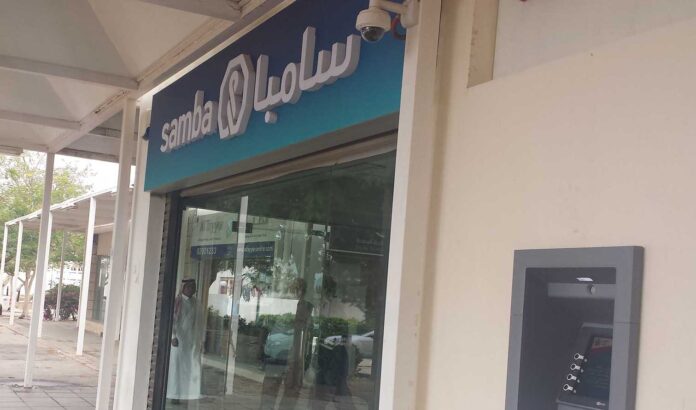On November 12, 2024, Samba Bank informed via a notification on the Pakistan Stock Exchange (PSX) that the Saudi National Bank (SNB), a majority shareholder of Samba Bank Limited in Pakistan, has decided to halt the sale of its equity stake in the bank.
“We have been notified that after the completion of due diligence and exploration for the sale of its shares in Samba Bank Limited (“Samba Pakistan”), the Saudi National Bank (“SNB”), as the majority shareholder of Samba Pakistan, is terminating the process for the sale of SNB’s equity stake in Samba Pakistan,” read the notice sent to the PSX.
The decision follows months of exploration aimed at finding a buyer for SNB’s stake, yet the process has now been formally concluded without a sale.
On April 9, 2024, Bank Alfalah Limited (BAFL) expressed public interest in acquiring up to 84.51% stake in Samba Bank Limited. Subsequently, in May, the State Bank of Pakistan (SBP) granted BAFL approval to begin due diligence on Samba Bank.
This marks SNB’s second termination of a planned sale for its Pakistani subsidiary. The bank first explored a sale in 2021 as part of a restructuring following SNB’s merger with Samba Financial Group.
Profit reached out to sources from Samba Bank to find out why the sale was terminated. However, the sources responded saying that they were not privy to such information and do not know the specific reasons for termination as the sale process was being carried out by the Saudi National Bank and not Samba Bank Pakistan. And that it was ‘too early to speculate’. “However, the decision means Saudi investment remains in Pakistan, which is a positive outcome for the country”, remarked the source.
Not the first time
This is not the first time that SNB decided to sell the bank and then later terminated the process.
In 2021, Samba Bank decided to put the “For Sale” sign out in the yard. Samba Bank’s low-risk, well-maintained balance sheet would seem an ideal entry point for any institution aiming to expand in Pakistan, yet the deal keeps slipping away. Initially, SNB’s 2021 decision to divest was due to the reorganization of its parent company in Saudi Arabia, which resulted in the formation of SNB after a merger between the National Commercial Bank (NCB) and Samba Financial Group. This merger left Samba Bank as a minor asset in SNB’s massive $239 billion portfolio—a tiny, underutilized corner of capital.
The bank’s sale made sense on paper. Managing a foreign subsidiary means dealing with capital constraints, particularly under the global Basel III framework, which requires banks to maintain a set amount of capital reserves against risks. As a senior banker noted, every dollar parked in Pakistan meant SNB had to set aside an equivalent amount as a buffer, a costly trade-off for a small market presence.
Read more: Who will buy Samba Bank and why?
The bank itself was small (the smallest commercial bank in Pakistan in fact), clean, and well-run. Samba was the suburban white picket home of bank shopping. Which is why a number of buyers stepped up to the plate ranging from United Bank (UBL) to Askari Bank and a consortium led by Fatima Fertiliser.
Despite the interest, Samba failed to strike a deal with any of the potential buyers. In fact in May 2022, the bank announced it was terminating the process for the sale due to “unstable market conditions.” It seemed the new owners of Samba’s parent companies were starting to catch up to Pakistan’s smallest commercial bank.
The sudden halt may not have been purely financial. According to reports, Samba Bank’s employees expressed serious concerns, reaching out to Pakistan’s central bank to advocate for protection packages should a new owner downsize the workforce. This concern was not without basis; many of the potential buyers planned to merge Samba’s operations with their own, which could have led to significant layoffs. This employee pushback, along with a rocky economic climate, seems to have influenced SNB’s change of heart, leading the bank to reaffirm its commitment to Samba and delay the sale.
However, just two years later at the end of March 2024, Bank Alfalah made a non-binding indicative offer to the bank’s Saudi owners to acquire their entire shareholding in Samba Pakistan. In turn, the Saudis agreed to evaluate the non-binding offer and invited Bank Alfalah to conduct diligence on Samba Bank Pakistan. The notification issued today puts an end to this possible sale.
Origins of Samba Bank
The origins of Samba go back to as early as 1955 when Citibank first established itself in Jeddah, Saudi Arabia. However, it wasn’t until 1980 that the Saudi American Bank (Samba) was formed as the result of a change in the law which required all foreign banks to be at least 60% Saudi-owned. Samba continued to grow, expanding its international presence by entering the United Kingdom in 1984, and creating one of the largest financial institutions in the Middle East after a merger with United Saudi Bank in 1999.
By 2004, Citibank had sold all of its remaining shareholdings to local investors, making the Samba Financial Group a wholly Saudi-owned subsidiary, looking to expand internationally. In 2007, Pakistan did not seem like a bad place to be, with other foreign banks such as RBS and Barclays entering the market the same year. Samba bought a majority stake in a fledgling 5-year old Crescent Commercial Bank and began operations.
In the 17 years since, Samba Bank has proven itself to be a small but reliable presence in Pakistan’s banking sector.
Samba Bank’s financial performance
The bank has never been overly ambitious, seemingly perfectly content with a small to medium presence in all aspects from its network of branches to its revenues and deposits. Samba Bank had a branch network of 47 branches at the end of 2023, only seven branches more than the Standard Chartered Bank, the smallest local foreign bank.
It is then no wonder its market share in terms of deposit size has remained between 0.3%-0.5% over the past 14 years, the lowest in the industry. At the same time however, although the deposit base is small, its 5-year CAGR for deposits is an impressive 15.9% compared to the industry’s 5-year CAGR of 13.9%.

A small branch network means that Samba Bank’s ability to attract low-cost funding is restricted. The bank’s deposit base is concentrated with term deposits from the public sector and institutions. The bank’s current account and savings account ratio to total deposits stood at 49% in the first nine months of 2024 as compared to industry average of 81%.
However, that has been changing. As per the September 2024 financial statements, the bank is in process of expanding its footprint by adding 10 new branches to its branch network in 2024. Three new branches have already become operational, while remaining seven new branches will become operational by close of 2024
Overall there has been a nominal growth in revenue and profitability, with a notable 22% compound annual growth rate (CAGR) in gross income (comprising net interest and non-interest income) over five years, and a 13% CAGR in net profit after tax during the same period.

In the first nine months of 2024, the bank’s total revenue amounted to Rs 6.9 billion which is higher than total revenue earned in every year except for 2023.
The notable increase in Samba Bank’s gross income is largely due to a significant rise in non-interest income, which surged by 55.4% over the previous period. This growth primarily stems from capital gains on investments, amounting to Rs 117.7 million, realized in the profit and loss (P&L) statement—an improvement from a capital loss recorded in the corresponding year.

A bank’s business is to accept deposits from customers and lend to other customers. In the case of Samba Bank, advance (lending) to deposit ratio (ADR) has remained historically higher than the industry ADR. In fact in 2022, when most banks were trying to improve their ADR to avoid paying extra taxes, Samba Bank was trying to reduce its lending, as ADR dropped from 102% in 2021 to 71% in 2022.
Samba Bank has gradually decreased its ADR, maintaining a cautious lending approach to ensure liquidity and reduce risk. To some extent, Samba has been successful in this pursuit, as gross ADR continued to decline to 64% in 2023. In the nine months of 2024, the ADR further went down to 58%.

The bank has strategically set out to deleverage the balance sheet to maintain adequate liquidity and a low-risk profile. “The bank is continuously right sizing its earning assets mix vis-à-vis credit risk. Asset base of the bank reduced by Rs 259.5 million over December 31, 2023 and stood at Rs. 178.4 billion as at September 30, 2024 which primarily represents a decline of Rs12.9 billion in advances, decline of Rs 5.2 billion in lending to financial institutions and growth of Rs18.6 billion in investments”, reads the bank’s financial statement.

On the liabilities side, the interbank borrowings increased by Rs 10.1 billion which was offset by decrease in deposits by Rs 10.2 billion.
As of now, Samba Bank remains under SNB ownership, with no immediate plans for sale. The bank continues a steady, conservative growth strategy within Pakistan’s banking sector.
























